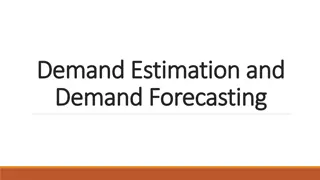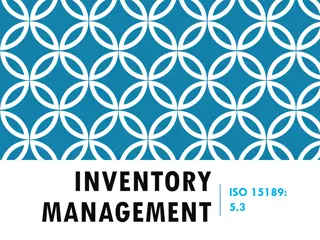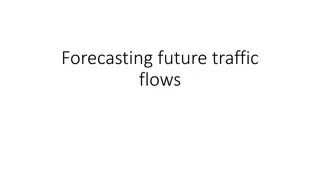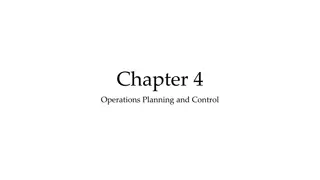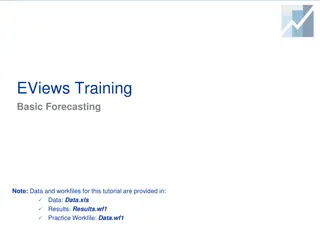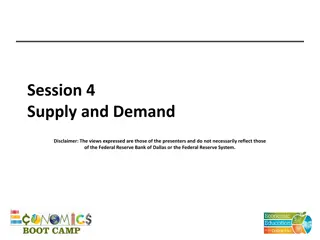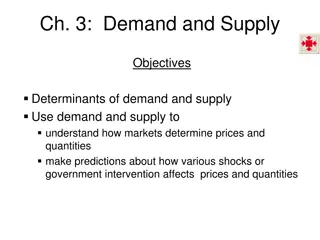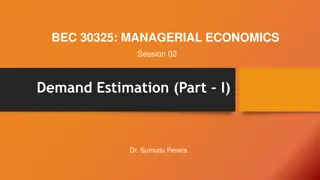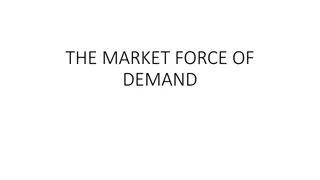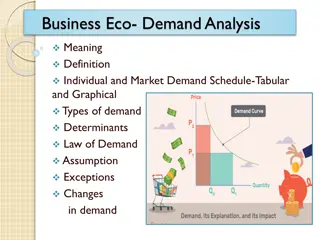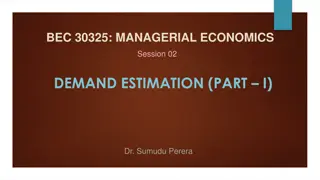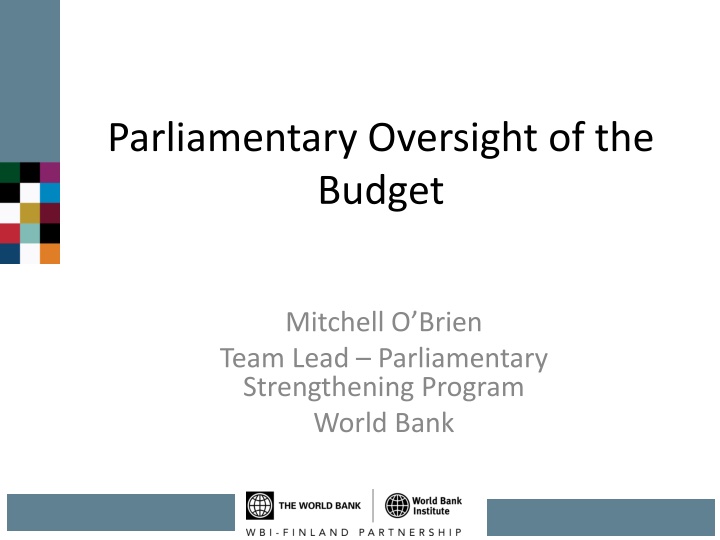
Managerial Economics: Demand Forecasting Essentials
Demand forecasting is crucial in reducing risk and uncertainty for business decision-making, encompassing qualitative and quantitative techniques. Explore micro and macro forecasting, objectives, and key strategies for accurate predictions.
Download Presentation

Please find below an Image/Link to download the presentation.
The content on the website is provided AS IS for your information and personal use only. It may not be sold, licensed, or shared on other websites without obtaining consent from the author. If you encounter any issues during the download, it is possible that the publisher has removed the file from their server.
You are allowed to download the files provided on this website for personal or commercial use, subject to the condition that they are used lawfully. All files are the property of their respective owners.
The content on the website is provided AS IS for your information and personal use only. It may not be sold, licensed, or shared on other websites without obtaining consent from the author.
E N D
Presentation Transcript
Parliamentary Oversight of the Budget Mitchell O Brien Team Lead Parliamentary Strengthening Program World Bank
Outline 1. What is the budget? 2. Objectives of budgeting 3. Budgeting process 4. Stakeholders 5. Addressing the asymmetry of information 6. The budget cycle and accountability
What is the Budget? budgeting is concerned with the translation of financial resources into human purposes. (Aaron Wildavsky) The most powerful tool at parliament s disposal Definition - An itemized summary of estimated or intended expenditures for a given period along with proposals for financing them. Budget Equation = Revenue + Expenditure Output versus Outcome Budgeting
Principles of Good Budgeting o Comprehensiveness: The budget must cover all the fiscal operations of government. o Predictability: Spending agencies should have certainty about their allocations in the medium term to enable them to plan ahead. o Contestability: No item in the budget should have an automatic claim to funding. o Transparency: Accurate, timely, reliable and comprehensive information. o Periodicity: The budget should cover a fixed period of time, and follow a clear schedule. However, should seek to achieve medium term objectives
Objectives of Budgeting Fiscal discipline: Budget totals should be the result of explicit, enforced decisions; they should not merely accommodate spending demands (MTEF). Allocative efficiency: Expenditures should be based on government priorities and on effectiveness of public programs (need to listen to the recommendations of the PAC). Operational efficiency: Agencies should produce goods and services at a cost that achieves ongoing efficiency gains. These objectives are interrelated!
Budgeting Process The budget cycle in government typically involves a number of different actors and follows a sequence of essential steps. We introduce the main participants of the budget process and present a simplified and generalized outline of planning, approving, implementing and auditing expenditures
Key actors in the Budget Process The finance ministry or treasury is to coordinate and drive the budget process in accordance with schedule. Spending departments are ultimately responsible for expenditures within their jurisdiction. President/Prime Minister and Cabinet make fundamentally political decisions about tradeoffs. The role of the legislature is to scrutinize and authorize revenues and expenditures. Independent supreme audit institutions audit government accounts for compliance and performance. Other actors may include the media, civil society organizations, donors and international financial institutions.
Addressing the Asymmetry of Information OECD Recommendations about budget transparency: A comprehensive budget includes performance data and medium term projections. A pre-budget report states explicitly the government s long-term economic and fiscal policy objectives, and its economic assumptions and fiscal policy intentions for the medium term. Monthly reports show progress in implementing the budget, including explanations of any differences between actual and forecast amounts. A mid-year report provides a comprehensive update on the implementation of the budget, including an updated forecast of the budget outcome for the medium term. A year-end report should be audited by the audit institution and released within six months of the end of the fiscal year. A pre-election report illuminates the general state of government finances immediately before an election. A long-term report assesses the long-term sustainability of current government policies. Additional sources of budget information: Audit reports External analysis Citizen feedback Tools: ATI Promoting regular disclosure Subpoena/ summons IFMIS
The Budget Cycle Stages of the annual budget process Finance ministry or treasury issues guidelines to spending departments or agencies Spending departments submit draft budgets Negotiation and final decisions by executive Budget tabled in the legislature Consideration by parliamentary committee(s) Parliament accepts, amends or rejects the budget Funds apportioned to spending departments to implement activities Finance ministry monitors spending Request for legislative approval of adjustment budget if necessary Supreme audit institution assesses departmental accounts and performance Audit reports published and reviewed by parliament Drafting Legislative Implementation Audit Before beginning of relevant fiscal year Fiscal year starts and ends Following end of fiscal year
The Budget Cycle and Accountability How does Parliament hold the executive to account through the budget process: Answerability Enforceability

